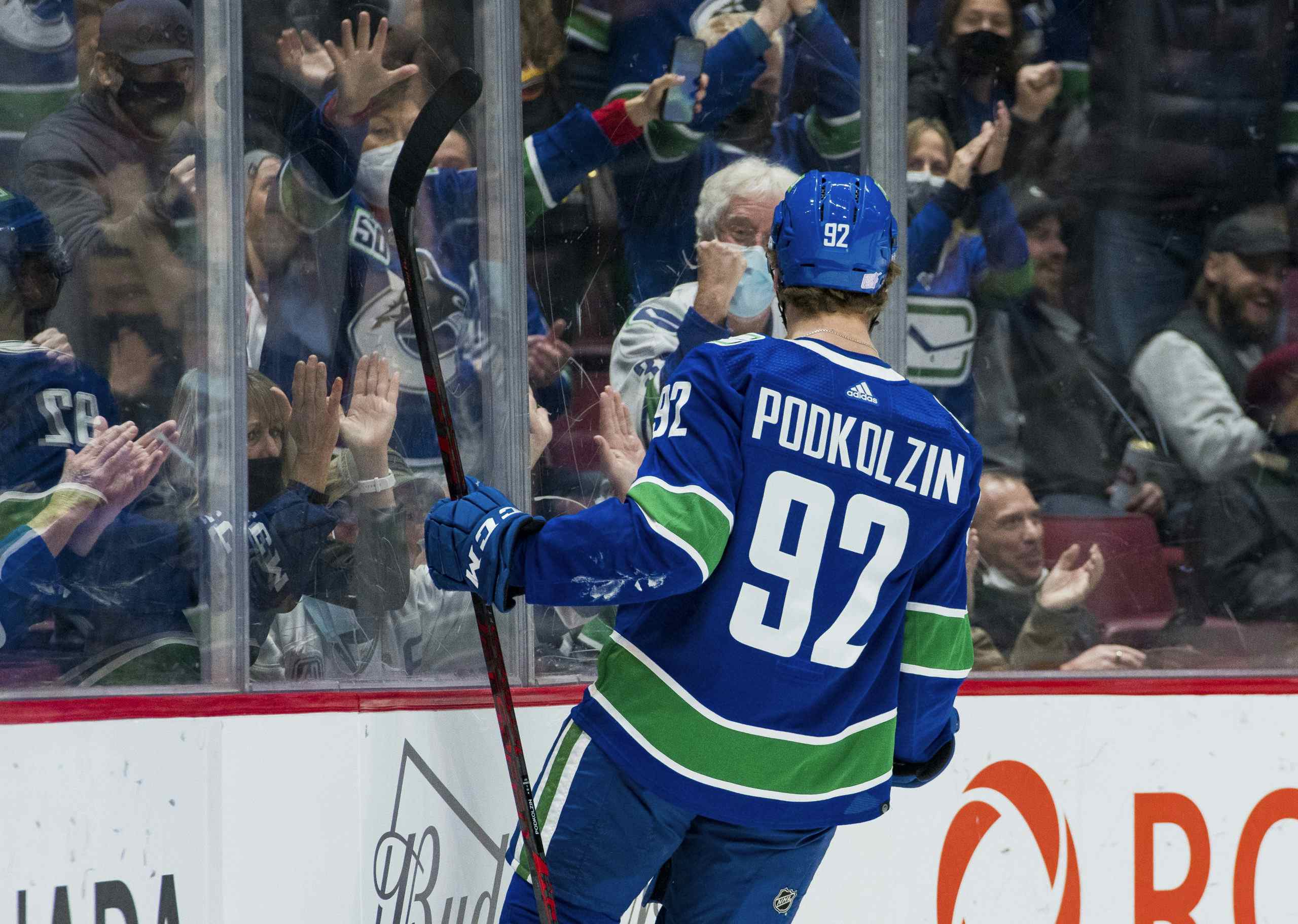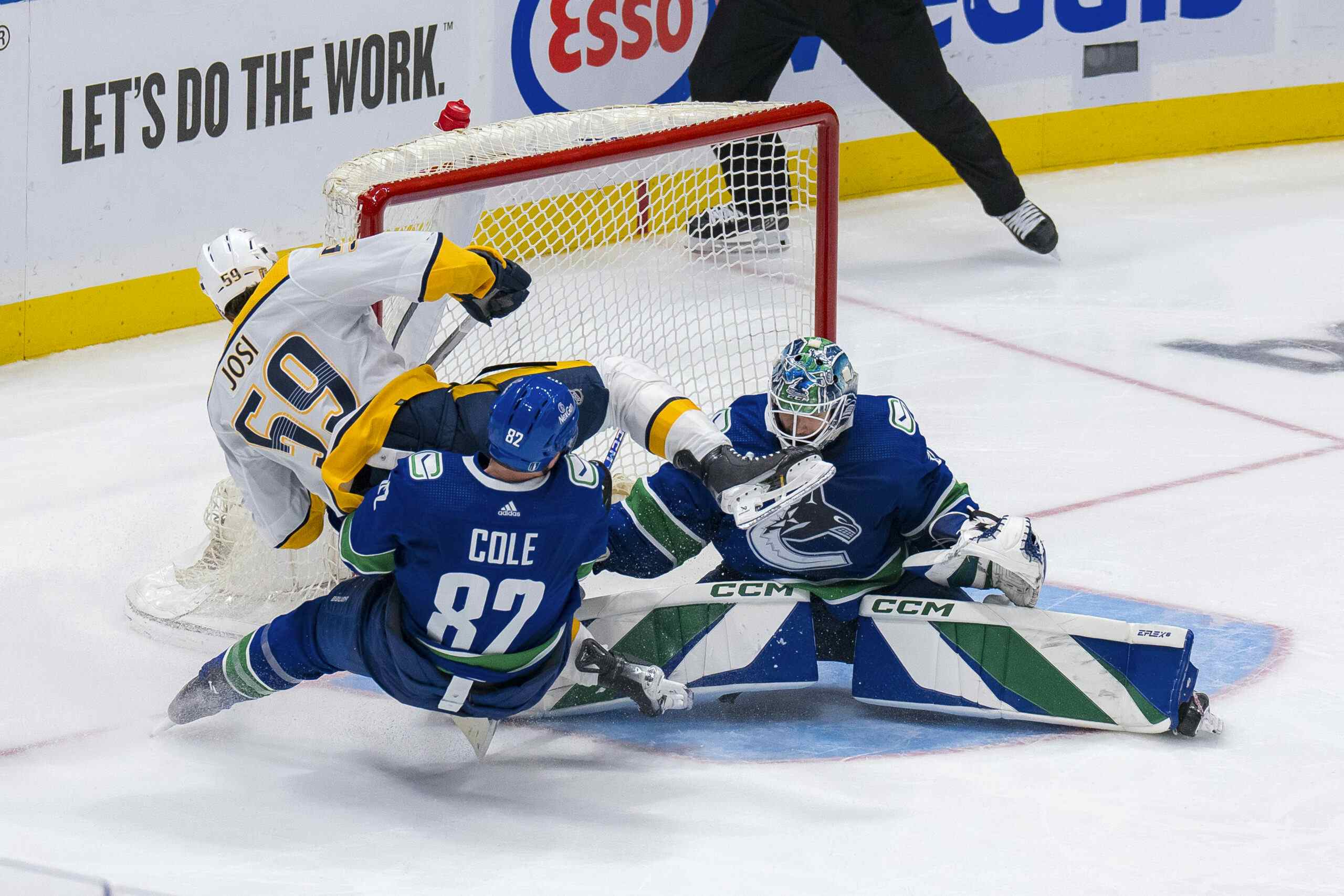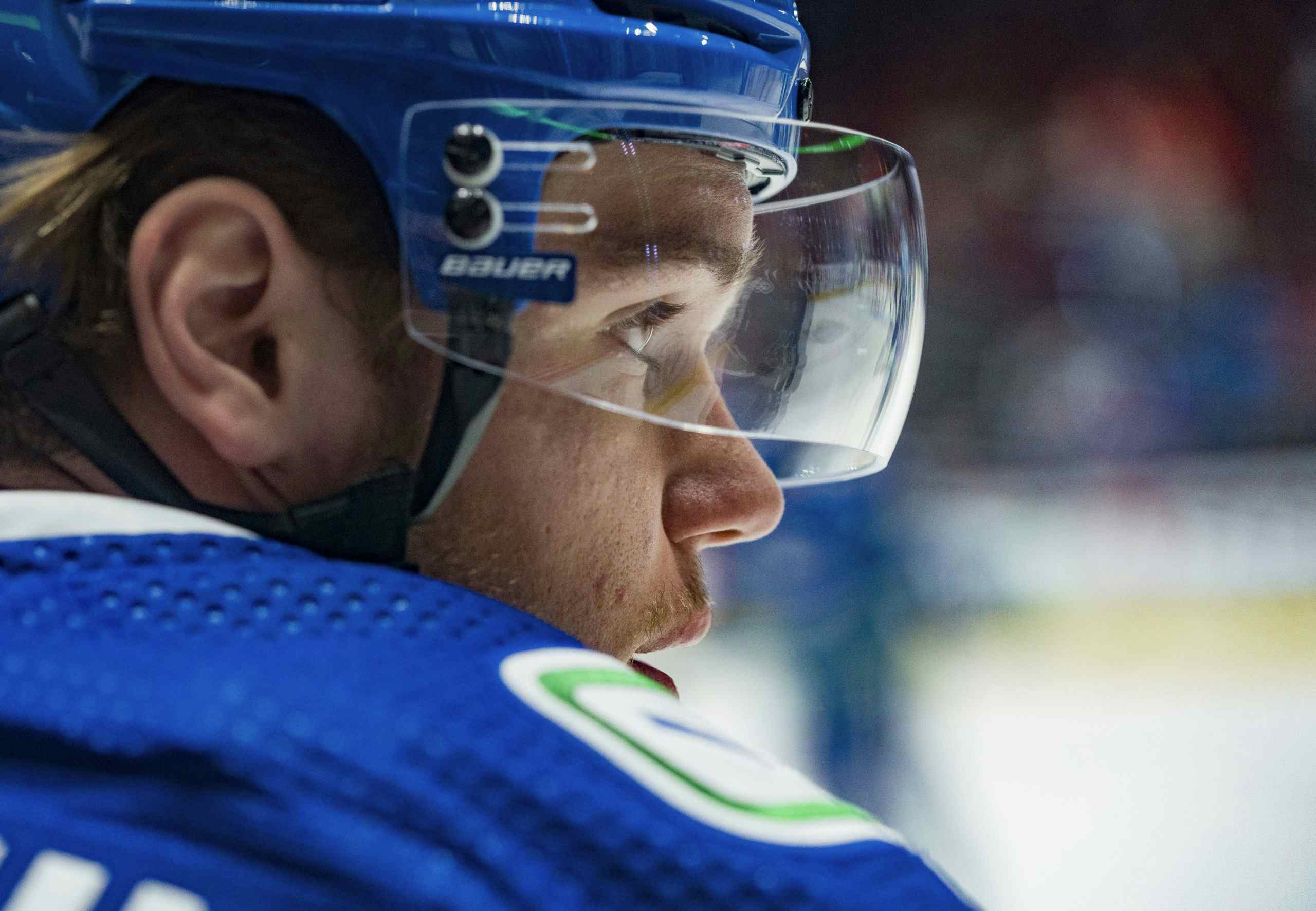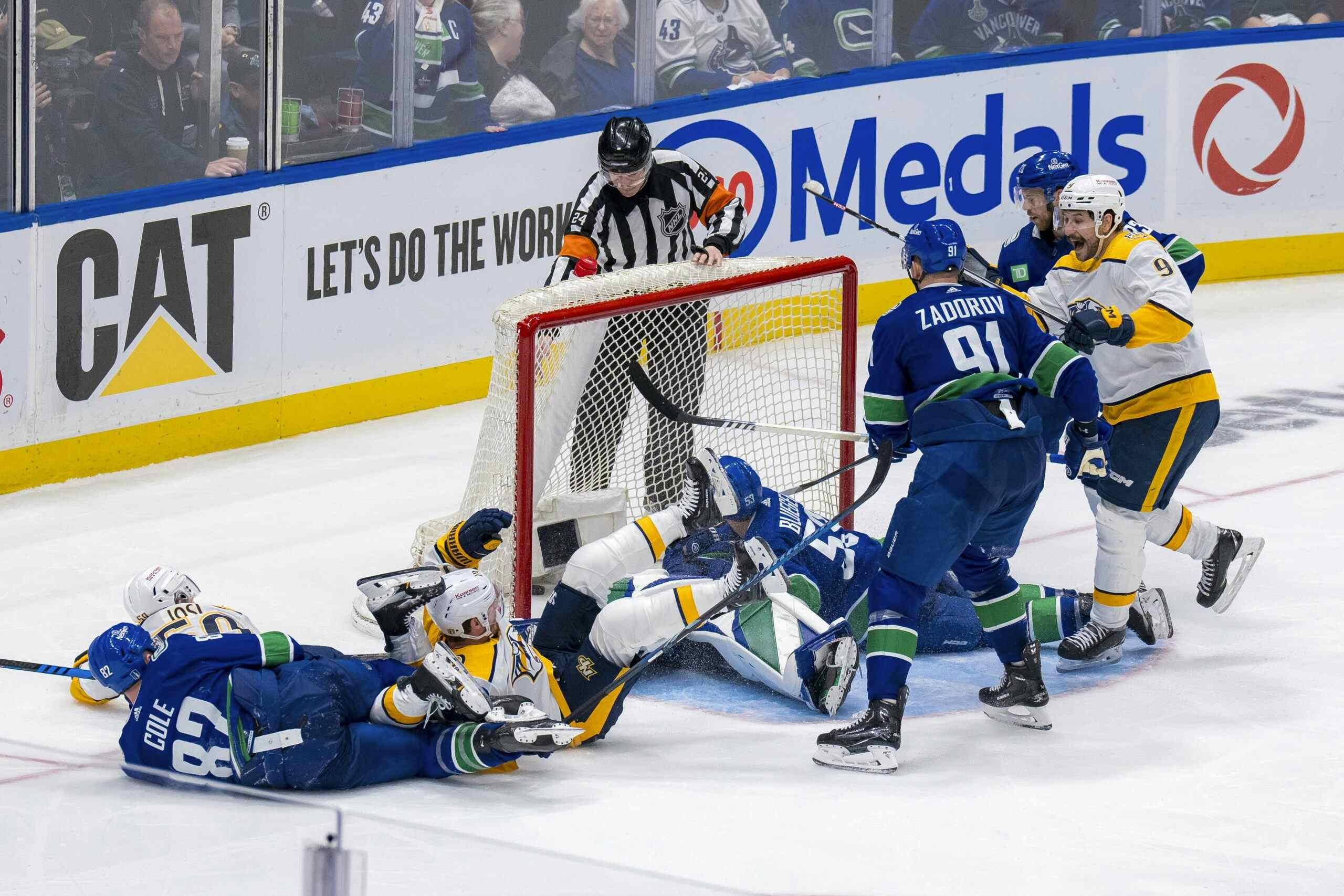Luongo’s “Last Day” Reax
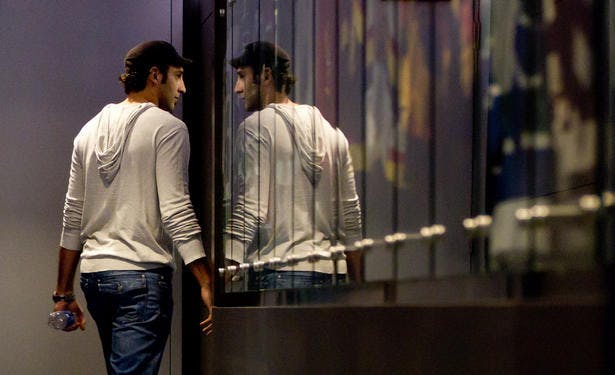
Luongo’s comments on Tuesday morning to the Vancouver press concerning his willingness to waive his no-trade clause if he’s asked to do so by Mike Gillis over the summer, generated buzz and speculation across the hockey world. Let’s round up some of the talking points after the jump.
Let’s start with Jason Botchford’s must read take on Luongo preparing to face the future with class and dignity:
Luongo wasn’t sombre. But he was resigned, ready to put the team first and prepared to cede one of the most difficult jobs in hockey to his ally, friend and former understudy Cory Schneider.His words could not have been easy. Much like sitting on the bench for the last three games of the playoffs. Luongo said he would waive his no-trade, if it was what GM Mike Gillis felt was best.This, you have to understand, was his team he was talking about leaving. He was the captain of the Cancuks, the goalie and a leader. The Canucks also promise to be his best shot at the one trophy which has eluded him, the Stanley Cup. And despite all the scrutiny and criticism, he loves playing here. He said that again Tuesday.But he also said he understands if management has decided to move forward with Schneider as its starter. Heck, if he was general manager he might feel exactly the same way.
Whatever happens over the summer, if Luongo has played his final game in Canucks blue – I’ll miss him greatly and will absolutely continue to root for him to hoist a Cup, and at long last silence his critics.
David Ebner of the Globe and Mail meanwhile, summed up Gillis’ predicament between the pipes:
Gillis plans changes – but not big ones. His biggest challenge is goaltending. Long-time starter Roberto Luongo is ready to waive his no-trade clause, after talking to Gillis on Tuesday morning. Cory Schneider, a restricted free agent, said he wants to be a starter, somewhere, playing 60 to 70 games.While Gillis probably would like to keep Luongo and the ascendant Schneider, that seems doubtful, with Luongo likely the one to depart.
Marc Spector read between the lines, and theorizes that the return for Luongo might be better than most are anticipating:
On days like this one, when everyone’s words are being recorded for accuracy, it is often more about what the participants didn’t say, rather than what they did.So when Roberto Luongo said, "I don’t want to put myself before the team. I don’t want to be that selfish guy," and then quickly admits he is willing to waive his no trade clause if asked, what he’s really saying is this:"Look, I’m a No. 1 goalie — a 65-start guy. If that’s going to happen here in Vancouver, great. If it has to be somewhere else, so be it. Contact my agent for a list of teams we will accept a trade to. You’ll have it in the morning."…The Luongo situation was made clear for everyone on Tuesday, as the media got its final whacks at the Canucks before they disperse into the off-season. Nobody spelled it out because nobody had to, but here is what will happen:Gillis will ask for and receive from Luongo’s agent Gilles Lupien, a list of teams to which Luongo would accept a trade. Gillis will look at the list of, say, five teams, immediately dismiss two of them as not having the commensurate return on their roster, and go to work on the other three.He’ll be in a hurry, both in an attempt not to avoid a messy divorce, and to have whatever cap room the deal might free up available on July 1. At that point, with Cory Schneider the clear cut No. 1 — and we’re betting a better return for Luongo than you might think — it’s time to figure out what kind of hockey team he should be building here.
James Mirtle, on the other, is signficantly more bearish about Luongo’s trade value:
Consider that Luongo has a no-trade clause, which he can use to land in a particular destination or two if he chooses. Dumping him in a market that has little chance for immediate success may not be an option.For another, that contract mitigates his value considerably, as the remaining 10 years at a $5.33-million cap hit will come with some risk given the new collective bargaining agreement is on its way this fall.Many NHL goaltenders play well into their mid-30s, but Luongo will still have four years left on the deal as he approaches 40 and there’s no guarantee he can maintain his play close to that long. (Save percentage tends to dip on average by about age 38.)There are, in other words, plenty of limitations here on what Canucks GM Mike Gillis is going to be able to bring back in a deal, and you don’t even have to look much past some of the other recent goaltender trades for examples of how far their value has fallen.Montreal moved Jaroslav Halak without getting a great deal in return and the likes of Mike Smith and Brian Elliott, two of the better goalies this season, signed on cheap free agent deals last summer.There is also the possibility Thomas, Miikka Kiprusoff and others are also available, which crowds the market.
Concerns about Luongo’s trade market value aside, for a team with issues in net, Luongo presents an attractive possible sollution. TSN’s Scott Cullen crunched the numbers to demonstrate the impact Luongo might have had on a team like the Toronto Maple Leafs this season:
Without getting into the contract and so on (it is a factor, of course), here’s why the Toronto Maple Leafs would consider Roberto Luongo: Over the last three seasons, Luongo’s save percentage is .920.By inserting that into Toronto’s lineup in 2011-2012 for 60 games, with the Leafs allowing an average of 30.8 shots against (same as Vancouver, incidentally), then Toronto, with no change in performance (ie. 900 SV%) from James Reimer in the remaining games, would allow 2.55 goals against per game, down from 3.16 per game in 2011-2012.That difference of .61 goals per game, over 82 games, amounts to a 50-goal difference. Adding 50 goals onto Toronto’s 2011-2012 goal differential would have the Leafs at a plus-17, which would be better than six of this year’s playoff teams.
Finally, a Montreal based "source" claimed to have already been given a list of five times Luongo would be willing to be traded to. That (probably) false report was quickly debunked by TSN’s James Duthie.
We’re in for an offseason rife with speculation, endless debates about Luongo’s value and the exact ins and outs of his life-time deal. Luongo the player is exceedingly valuable. While there’s no doubt his contract "mitigates" that value to some extent, there’s clealry several observers who expect the Canucks to recoup assets in any deal moving their starter. We’ve looked at the movability of Luongo’s deal in the past, and most of what we wrote then still applies. We also remain convinced, based on the structure of Cory Schneider’s impending restricted free-agency, that if the Canucks are to move Luongo – that really needs to happen at the draft table.
Recent articles from Thomas Drance

